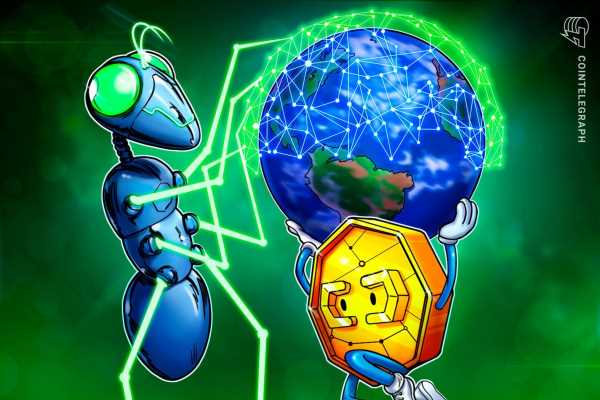Dominic Williams, founder and chief scientist at Dfinity, says blockchain technology and its decentralized and trustless nature, gives it a unique ability to assist in the fight against climate change.
Williams told Cointelegraph there are three ways in which blockchain can address climate challenges. Blockchain networks can support the creation of trustless infrastructure that offers incentives for climate action, increases efficiency and provides an alternative to traditional information technology, which has a “huge carbon footprint.”
As an example of how blockchain can be used for the environment, Williams highlighted the Voluntary Recycling Credits (VRC) initiative. VRC is an incentive system to counteract the solid waste footprint. The platform was recently presented at the COP28 summit and is built on the Internet Computer (ICP) network. Williams said:
According to Williams, blockchain networks like the ICP provide trustless infrastructure that eliminates third parties and allows for secure and transparent data verification. “This can be leveraged to ensure proper recycling and handling of waste materials by tracking them from origin to destination,” he added.
Related: COP28: Blockchain projects make push to decentralize climate markets
In the case of the Voluntary Recycling Credits exchange, the ICP powers auditable and secure transactions between waste offsetters and recycling companies. With this, waste producers and recyclers can “trust the veracity of the credits they purchase, sell or trade.
Williams noted that the “ICP guarantees the VRC operates in a transparent and tamper-proof manner.” The executive told Cointelegraph that credits that are minted and sold are auditable and secure records of recycling credits and transactions.
Magazine: Real AI use cases in crypto: Crypto-based AI markets, and AI financial analysis
Source: Read Full Article
